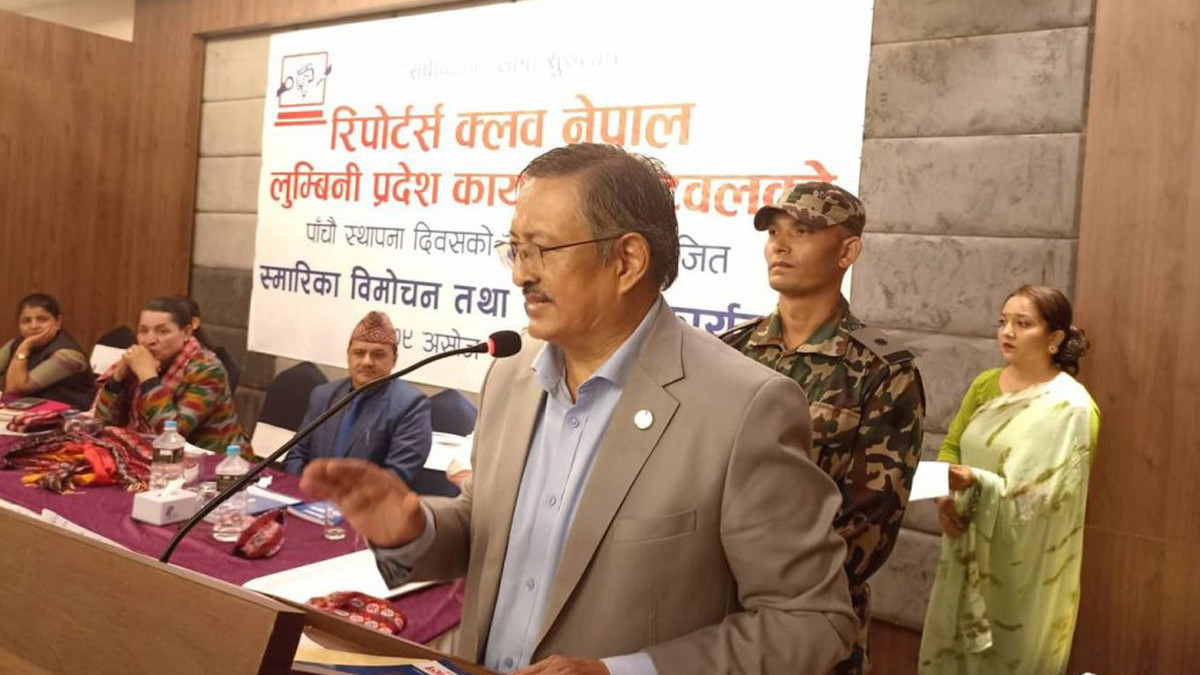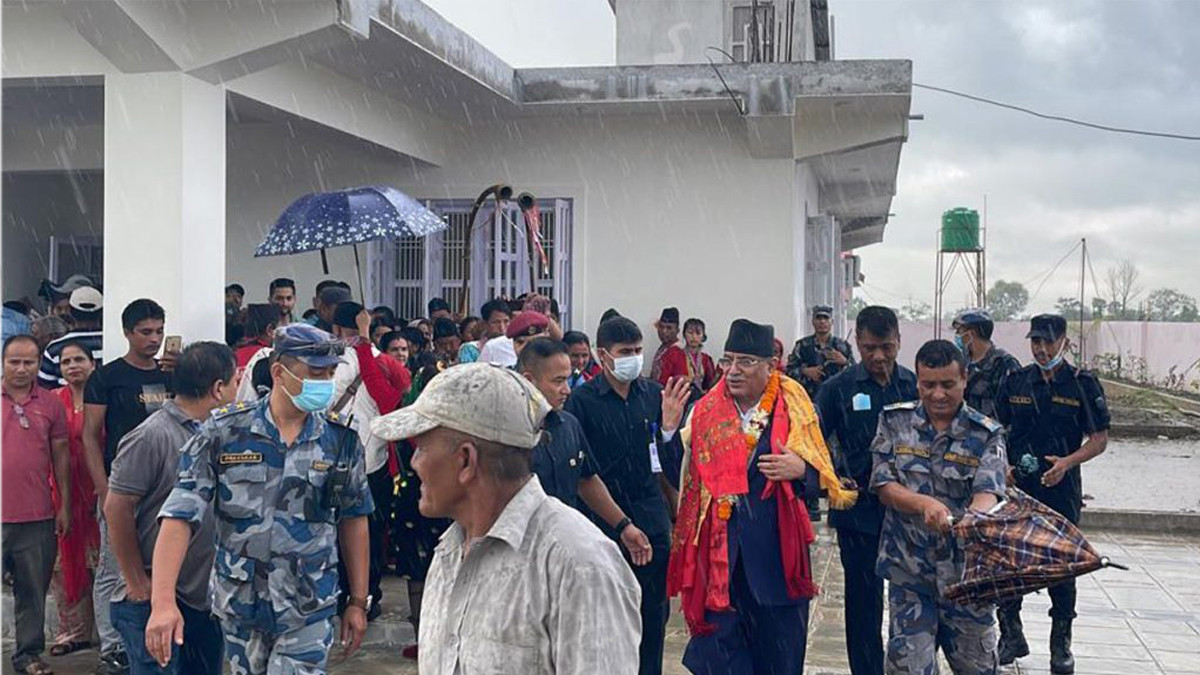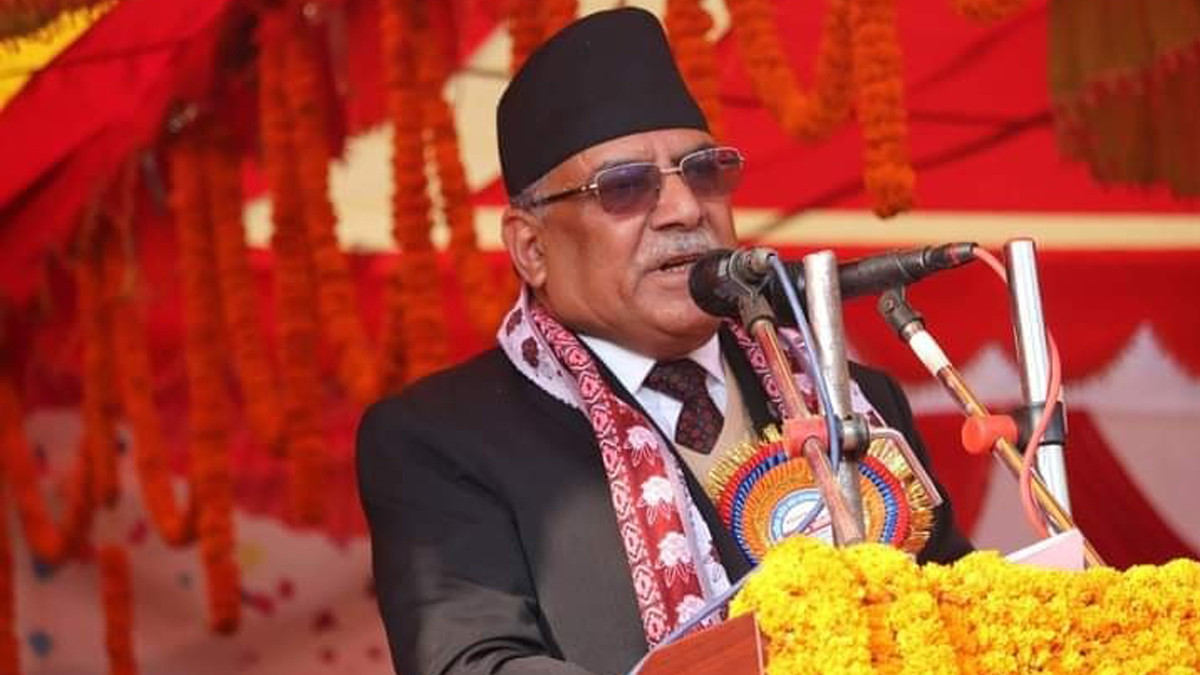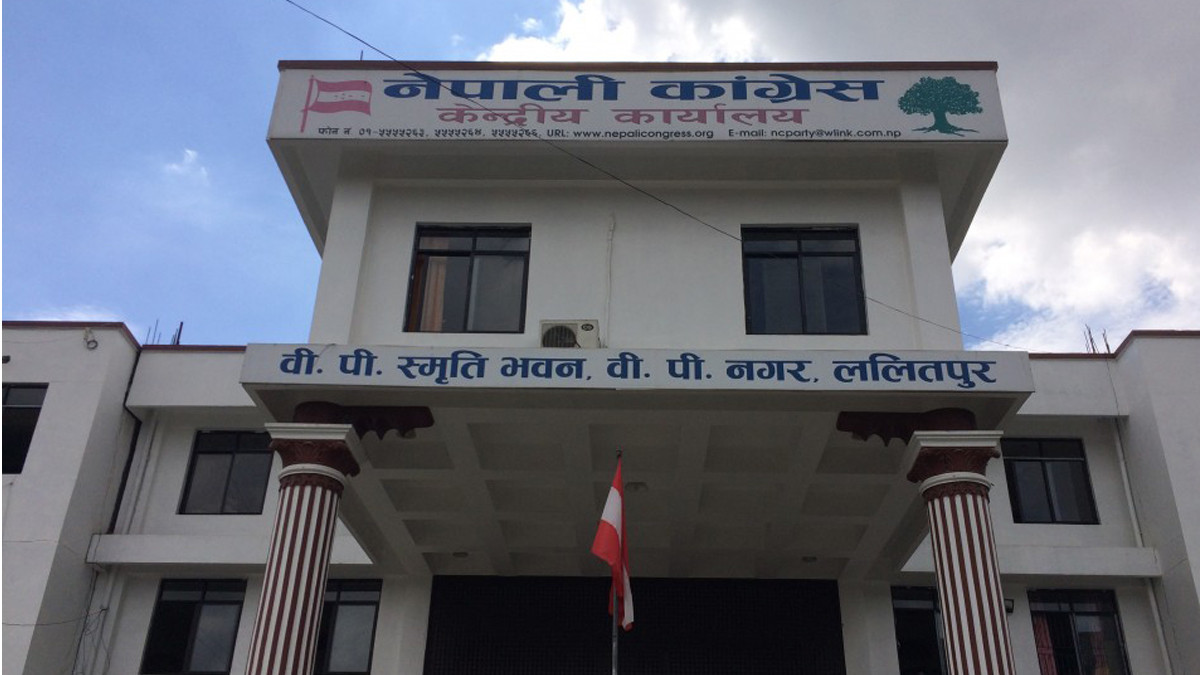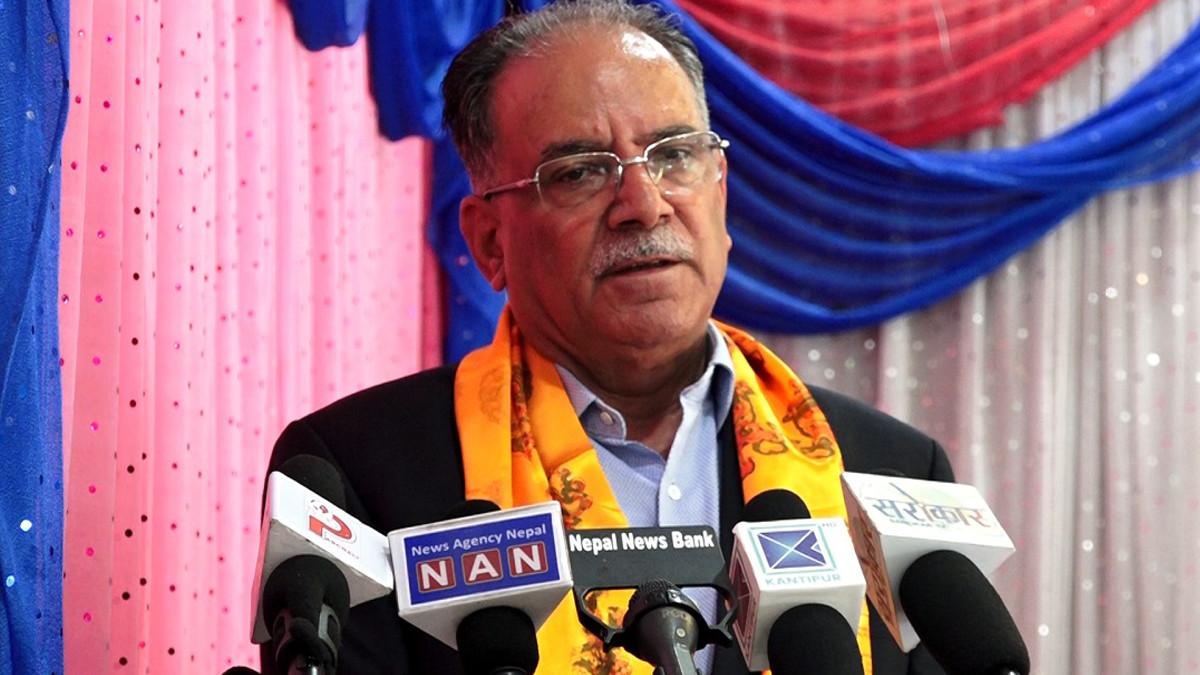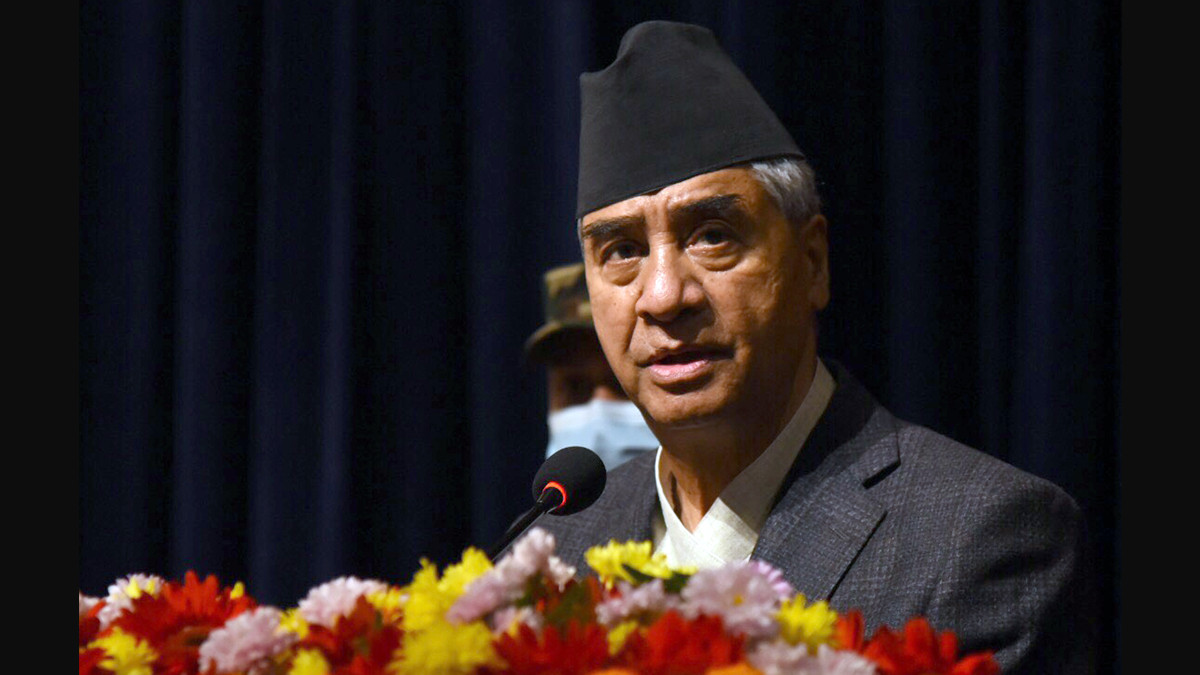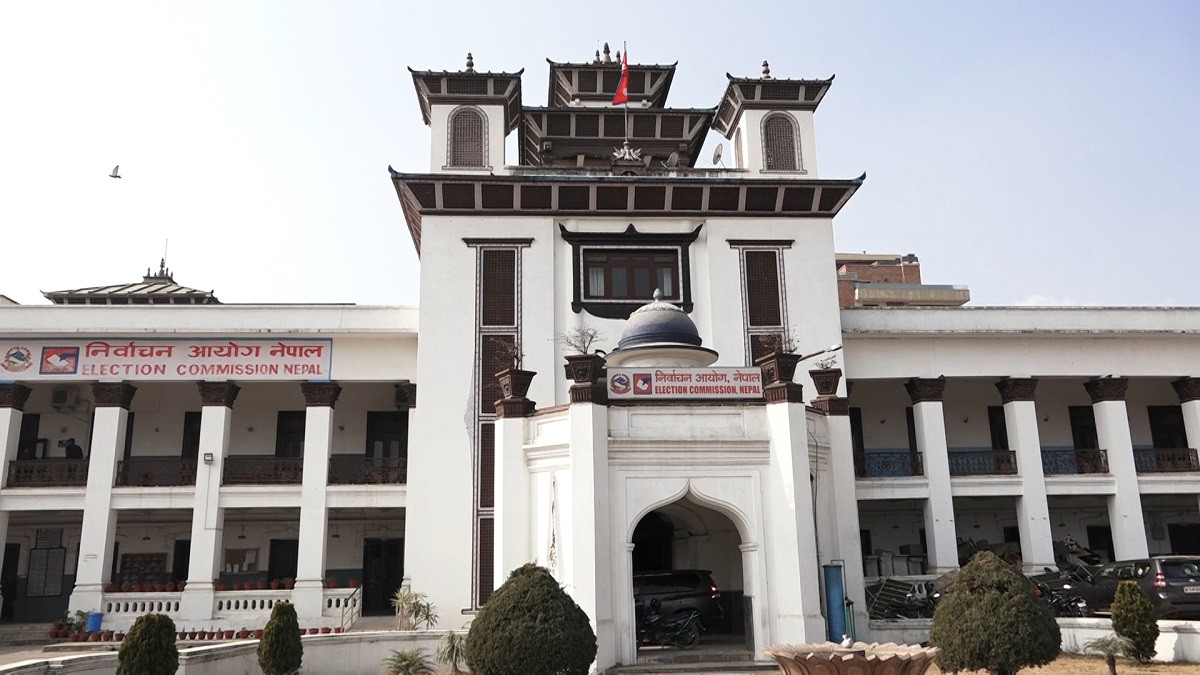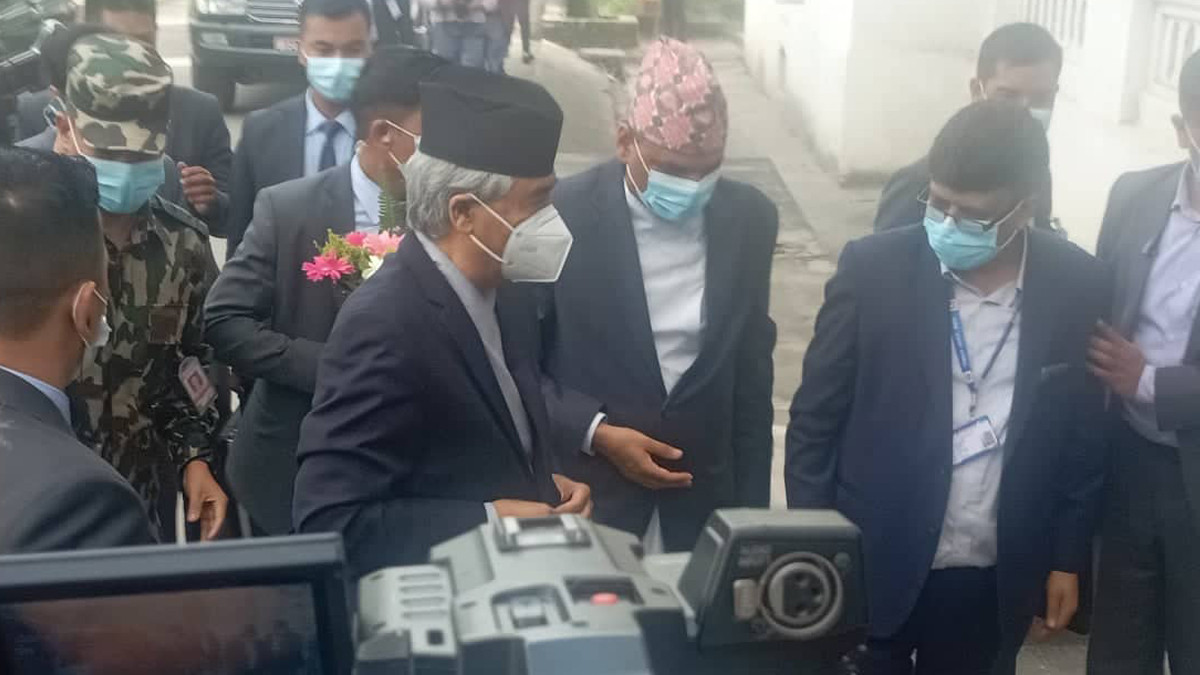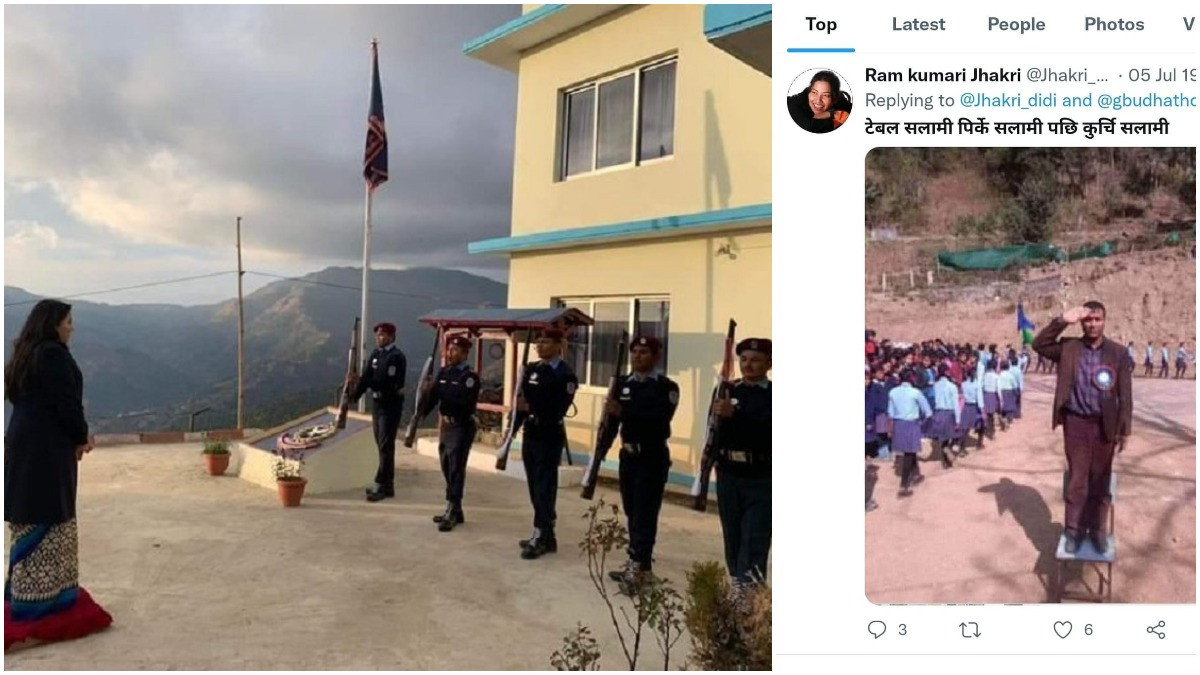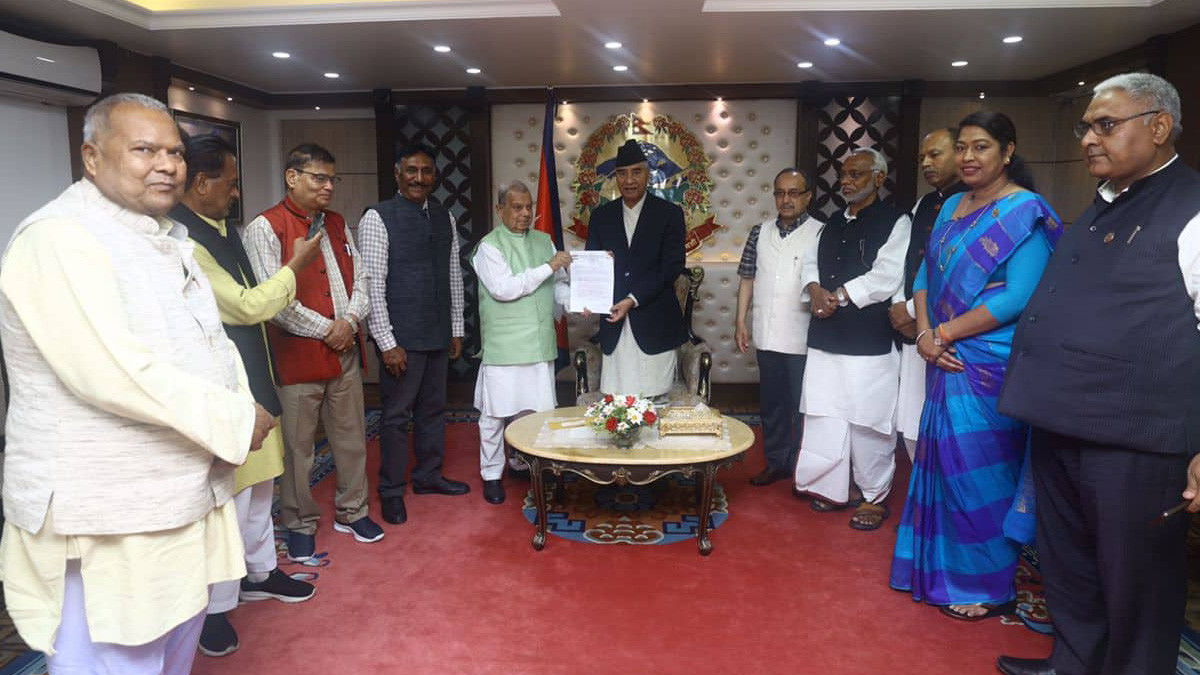
The Loktantrik Samajwadi Party (LSP) today submitted a memorandum to Prime Minister Sher Bahadur Deuba putting forth 11-point demands.
A team led by party Chairperson Mahantha Thakur reached the official residence of the Prime Minister at Baluwatar and submitted the memo.
The memo demands to issue citizenship certificates to the children of parents having citizenship by birth as well as to withdraw cases filed against party leaders and cadres.
Leaders including Rajendra Mahato, Sharat Singh Bhandari and Laxman Lal Karna were in the team.
Receiving the memo, PM Deuba said that the government was positive towards the demands of the party and initiative would be taken for its implementation, said leader Karna quoting the Prime Minister.
He shared, "We submitted the memo to the Prime Minister. He was positive towards our demands. He has expressed commitment to implement it. We are confident that the incumbent government will implement it."
The LSP has called attention to the government demanding the immediate implementation and addressing the demands which it had been raising since the past and the agreements and understanding reached with various governments before this.
The memorandum, among other things, calls for withdrawing the cases against the leaders and cadres participating in the Madhes-Tharuhat movements and releasing from jail Resham Chaudhary and other 'political prisoners'.
LSP has called for amending the constitution for securing the respect, identity and rights of the oppressed communities as Madhesi, Tharu, indigenous nationalities, Shilpi (Dalits), women and Muslims among others.
Likewise, the party demanded adoption of the principle of proportional allocation of budget by the three-tier government, making public the report of the Lal Commission and implementation of the agreements reached with the United Democratic Madhesi Front in the past.
The memorandum also calls for ensuring that the election will be conducted in a free, fair and credible environment, providing fertilizer to the farmers, reduction of disaster risk, managing the resettlement of the displaced people and providing land to the landless, oppressed communities with priority.

